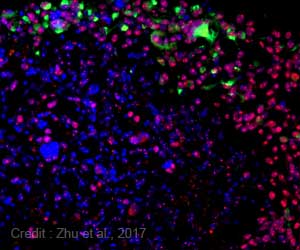
There are other screening choices for colorectal cancer (CRC), including fecal occult blood testing (FOBT), fecal immunochemical testing, and colonoscopy.
Colonoscopy is the gold standard of CRC screening, but patient resistance - mostly due to the unpleasant preparation - has curbed widespread adoption.
FOBT is non-invasive but has limited sensitivity, particularly for early disease. A sensitive and specific non-invasive test using blood or stool could to be a more preferable option with the potential of saving many lives.
In their search for a biomarker that could be used for the early detection of CRC, investigators from Genomictree, Inc. and Yonsei University College of Medicine in Seoul, South Korea, performed DNA microarray analysis coupled with enriched methylated DNA using tissues from primary tumors and non-tumor tissues from 12 CRC patients.
After step-wise filtering, they found a set of genes that were highly methylated across all of the CRC tumors. Ultimately they identified one gene, SDC2, which encodes the membrane syndecan-2 protein, a protein that is known to participate in cell proliferation, cell migration, and is expressed in colon mesenchymal cells.
Advertisement
The next step was to clinically validate the biomarker by analyzing SDC2 methylation levels in primary tumors and paired-adjacent non-tumor tissue samples from 133 CRC patients. Investigators found that in the transcriptional regulatory region of the SDC2 gene, tumor samples showed significantly higher levels of methylation than the control samples.
Advertisement
Further, investigators found that the SDC2 biomarker could be measured in serum samples from CRC patients and healthy individuals.
"The SDC2 methylation test was able to detect 92 percent for detection of stage I cancer patients indicating that SDC2 is suitable for early detection of CRC where therapeutic interventions have the greatest likelihood of curing the patient from the disease," first author TaeJeong Oh, PhD, said.
The results have been published in The Journal of Molecular Diagnostics.
Source-ANI













